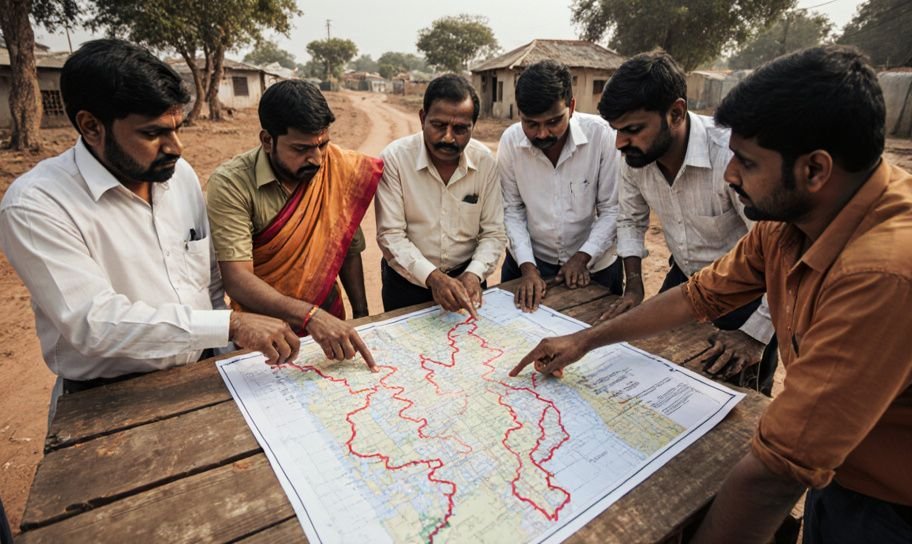
Summary: The Bombay High Court dismissed several requests that challenged how voting areas were set up for local elections in Maharashtra. The court stressed that it wouldn't get involved in election matters unless there's a clear legal problem.
Background:
Several requests were filed against the final notice about how voting areas were set up in Maharashtra. Ganesh Namdev Sagle and others argued that the process was random and unfair, affecting the upcoming local elections. They mainly complained about how the boundaries were drawn and which villages were included or left out.
Legal Framework:
The court looked at its power under Article 226 of the Constitution. It noted that it should only get involved in election matters if there's a breach of the Constitution. The Supreme Court has always supported this view, saying that elections should not be stopped by court actions.
"The courts cannot interfere... so long as the panchayat areas and the constituencies are delimited in conformity with the constitutional provisions." - Supreme Court
Petitioners' Claims:
Ganesh Namdev Sagle and others claimed that their complaints were not properly looked at. They argued that the changes in boundaries were politically motivated and made it hard for voters.
Court's Analysis:
The court checked whether the process followed the rules set in the government order dated June 12, 2025. It found that the complaints were considered, and the process was not random. The court stressed that it cannot act like a higher authority over election decisions.
"The petitioners have not been able to make out a case to hold that the respondents have exercised the power in an arbitrary or malicious manner."
Taluka - Kalamnuri, District - Hingoli:
Ganesh Namdev Sagle argued that the voting areas were unfairly decided. The court found that the complaints were addressed and the zig-zag pattern for boundary determination was followed.
Taluka - Jamkhed, District - Ahilyanagar:
Petitioners were okay with the draft but didn't like changes made in the final notice. The court noted that the changes were logical and aimed at balancing the population.
Taluka - Mahur, District - Nanded:
Complaints about which villages were included were raised. The court found that the decisions were made to keep population balance and were not random.
The court dismissed all requests, reinforcing that election processes must be respected unless there's a clear legal problem. The focus was on conducting elections efficiently without unnecessary delays. The Supreme Court's instruction to hold elections quickly was a significant factor in the court's decision.